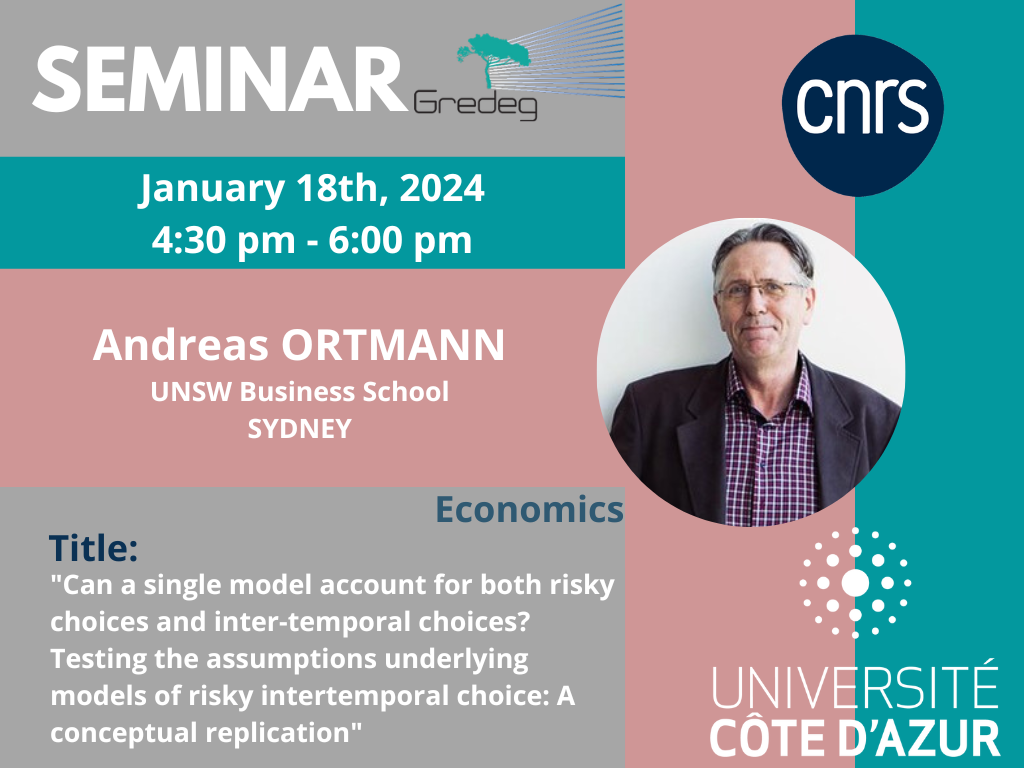Aller au contenu
Aller au contenu
Navigation
Accès directs
INTRANET / ENT
Séminaire GREDEG : Andreas ORTMANN (UNSW Business School)
Publié le 4 janvier 2024
–
Mis à jour le 5 juillet 2024
Date(s)
Lieu(x)
4:30 PM - 6:00 PM
Room PICASSO
GREDEG

Economics
Date(s)
Le
18 janvier 2024 16:30
- 18:00
https://gredeg.univ-cotedazur.fr/seminaire-gredeg-andreas-ortmann

